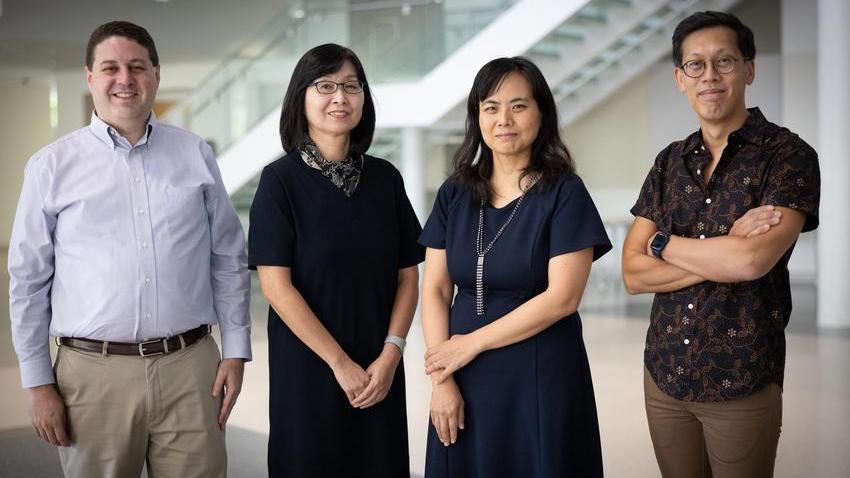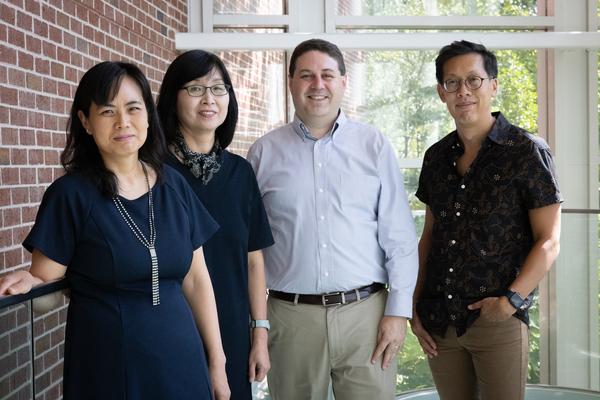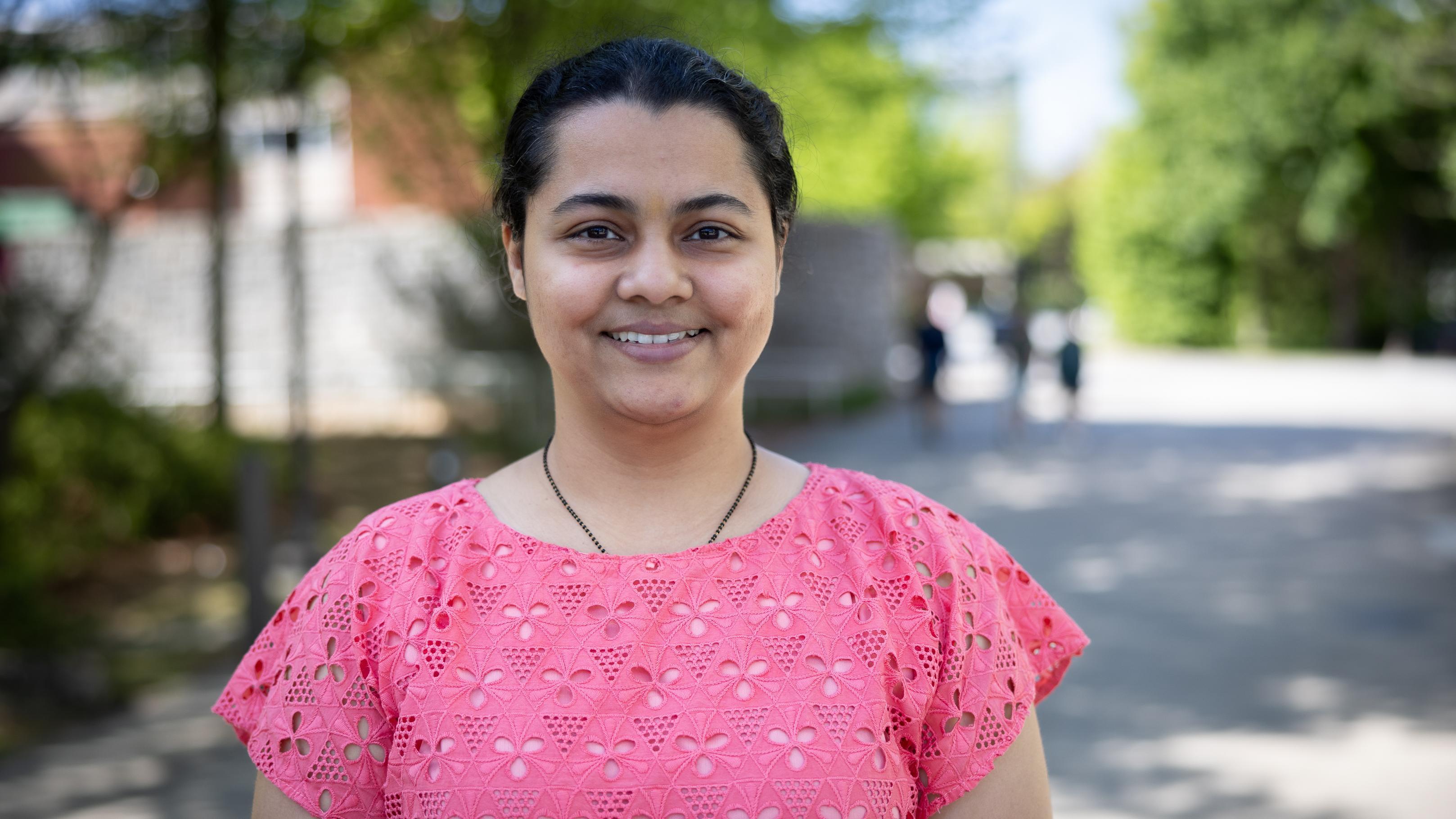
Grant to Help Accelerate Data Movement Techniques for HPC
Researchers from the School of Computer Science and School of Computational Science and Engineering were recently awarded a grant from the National Science Foundation (NSF) to make communication faster and more energy-efficient for high-performance computing (HPC).
The recipients include SCS Professor and Associate Chair Hyesoon Kim (PI), CSE Regents' Professor and Chair Haesun Park, CSE Professor Richard Vuduc, and SCS Research Scientist Jeffrey Young. Collaborators on the grant include Bahar Asgari, an assistant professor at the University of Maryland and a GT Ph.D. alumnus.

(Photos by Kevin Beasley/College of Computing)
The award, a Principles and Practice of Scalable Systems (PPoSS) grant, provides the Georgia Tech researchers $4 million for the next five years.
Important scientific simulations often involve large data inputs or outputs. These can be sparse and demand additional effort and energy for transfer across processors, memories, and disks within an expansive HPC system.
Kim said the project is a holistic approach that combines algorithmic, system, architecture, and security approaches to accelerate data transfer.
“The crux of this proposal is to accelerate data transfer by fusing computation with data transfer, using compression or other techniques to reduce the amount of data, and changing the algorithms to reduce or hide data transfer overhead.
“The Data Movement Accelerator project marks a shift in High-Performance Computing, focusing on speeding up data transfer rather than just computation. By combining smart algorithms and advanced hardware, the project tackles data communication challenges head-on,” said Kim.
The PPoSS program supports interdisciplinary research that includes the scalability and accuracy of modern applications, systems, and toolchains. The grants fund projects that span the entire hardware/software stack and that lay the foundations for sustainable approaches for implementing performant, scalable, and accurate computing applications.
"This project features a great team, having expertise across several areas—from algorithms to systems to hardware—as well as strong ties to Georgia Tech,” said Vuduc.
We are thrilled to announce Vivek Sarkar as the new Dean of the College of Computing at Georgia Tech! With a distinguished career spanning academia and industry, Sarkar's leadership promises to elevate our community to new heights. https://t.co/2mX5D46cJz pic.twitter.com/LxpLTCXWZV
— Georgia Tech Computing (@gtcomputing) April 12, 2024
@GeorgiaTech's dedication to excellence in computer science (CS) has been recognized once again, with the latest U.S. News and World Report rankings unveiling the institution at 7th place overall for graduate CS studies.https://t.co/qavNUSTb7n pic.twitter.com/BcGyGBQld8
— Georgia Tech Computing (@gtcomputing) April 10, 2024


